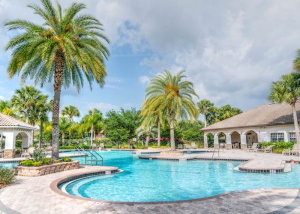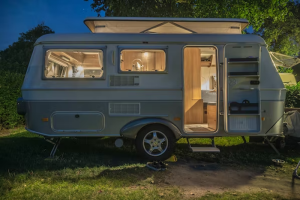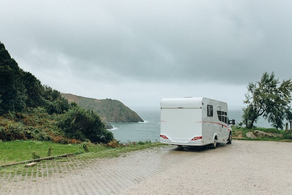Cooke v Beach Station Caravans Ltd
England & Wales
Chancery Division
5 July 1974
The Respondent Company was the operator of a caravan park at a seaside resort.
The Respondent hires caravans on the site to its customers, and also provides sites for the parking of caravans owned by tourists.
The site facilities are available on daily or weekly terms and also for longer periods.
In order to attract customers, it provided flush lavatories, showers, water, shops, laundries, children’s playground, amusement hall, licensed bars, and heated swimming and paddling pools.

The two pools were constructed to a detailed specification commissioned by the Company.
They were excavated, concreted and lined with a material called marblite, and they stood in a substantial area paved with slabs 2 ft. square.
They had an estimated life of 25 to 30 years.
On grounds of amenity and public health, they were provided with an elaborate system for filtering, chlorinating and heating the water.

The Company claimed that the whole of the expenditure on the construction of the pools (£7,145) qualified for capital allowances as expenditure on the provision of plant for the purposes of its trade.
The Inspector of Taxes agreed that items attributable to filtration, heating and recirculation, plumbing, fittings (steps, diving boards, etc.) and electrical installations were expenditure on the provision of plant, but disallowed the costs of terracing, construction of the pools and excavation (aggregating £3,353).
On appeal, the Company, in reliance on Commissioners of Inland Revenue v. Barclay, Curle & Co. Ltd, contended that it was unrealistic to sever the various items and that the pools as a whole constituted plant.
For the Crown it was contended that the pools were not plant but part of the setting in which the Company carried on its business, whereas the water treatment plant was not an integral part of a single entity and should be regarded separately for the purposes of capital allowances.

The Special Commissioners accepted the Company’s contention and allowed the appeal.
Megarry J held that the pool was not merely passive but was part of the apparatus used for carrying on the trade of operating a caravan park.
The pool formed an entity with its attendant apparatus for purifying and heating the water.
The pool was apparatus used in carrying on the trade of operating the caravan park. It performed the function of providing pleasurable and safe buoyancy for the swimmer.
And accordingly the Commissioners’ decision was correct.
In other circumstances a swimming pool might be part of the premises or setting and not ‘plant’ in common law. It is necessary to come to a judgement on the facts of the case.

Our website's articles, templates, and material are solely for reference. Although we make every effort to keep the information up to date and accurate, we make no representations or warranties of any kind, either express or implied, regarding the website or the information, articles, templates, or related graphics that are contained on the website in terms of its completeness, accuracy, reliability, suitability, or availability. Therefore, any reliance on such information is strictly at your own risk.
Keep in touch with us so that you can receive timely updates |
要获得即时更新,请与我们保持联系
1. Website ✍️ https://www.ccs-co.com/ 2. Telegram ✍️ http://bit.ly/YourAuditor 3. Facebook ✍
- https://www.facebook.com/YourHRAdvisory/?ref=pages_you_manage
- https://www.facebook.com/YourAuditor/?ref=pages_you_manage
4. Blog ✍ https://lnkd.in/e-Pu8_G 5. Google ✍ https://lnkd.in/ehZE6mxy
6. LinkedIn ✍ https://www.linkedin.com/company/74734209/admin/






